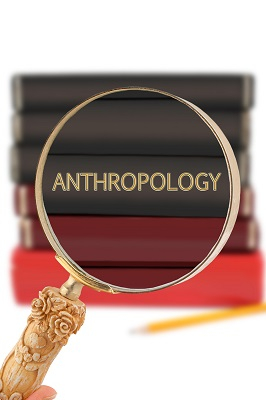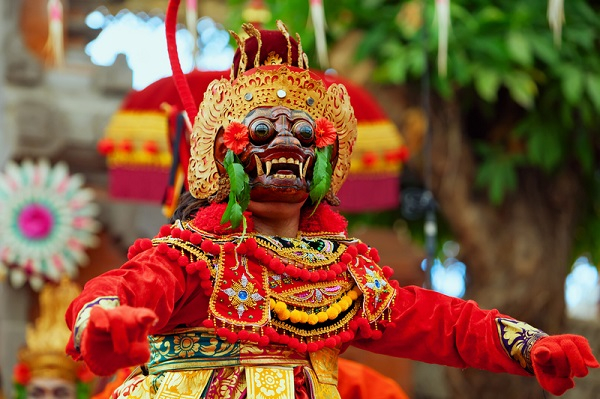


The search for social science in the nineteenth century served as the foundation for both anthropology and sociology. Sociology and sociocultural anthropology both have a theoretical foundation in the ongoing struggle between the need for a generalisation, rule-seeking science, and the need for a humanistic reflection on particular lives. Social-cultural anthropology explores human cultures over time and place to understand the shared characteristics.
The study of what makes people human is known as anthropology. Holism refers to anthropologists' comprehensive approach to comprehending the many distinct elements of the human experience.
Anthropology is divided into four branches
Archaeology − the study of ancient peoples and their cultures.
Biological anthropology − The field of biological anthropology focuses on evolution, genetics, and health.
Anthropology of the Culture − The study of human communities and their cultural significance.
Linguistic Anthropology − Studies the role of language in society.
Social-cultural anthropology studies human cultures over time and place and creates an understanding of their shared characteristics. It follows a comprehensive approach, focusing on the economic, political, environmental, and biological foundations of human social and cultural diversity, as well as social roles, relationships, social transformation, cultural identity, and cultural dimensions of dominance and resistance.
A society is a collection of individuals who are connected via long-term relationships in terms of social rank, roles, and social networks. By extension, society refers to the population of an area or country, and occasionally even the entire planet. Society involves diversity, and it is dependent on it as much as it is on likeness. A society founded only on similarity and homogeneity is going to be weak. All of our social systems are built on partnerships where differences complement one another.

Figure 2:Diverse groups of people in society
It is a collection of mental, intellectual, and material processes and products. Anthropologists refer to this whole as culture. New ideas are introduced to it each generation, and this is responsible for cultural evolution and transformation. Culture is non-genetic since it is the result of a social experience rather than biological heredity. Different human groups or societies have distinct cultures. This demonstrates cultural variety, implying that culture has both unity and diversity
Values − Values are what is regarded in society as good, proper, and desirable—or as evil, improper, or unwanted. It affects people's behaviour and acts as a standard for assessing other people's deeds.
Norms − A typical pattern of behaviour that is accepted by a society is referred to as a norm. Norms may vary from one community to another.
Culture Traits − The smallest (easiest) cultural building blocks are cultural attributes. They serve as the foundation of civilization. Each characteristic may be physical or immaterial. Each cultural characteristic has a shape, purpose, usage, and significance. As a tissue is made up of many cells, so is a complex culture made up of many features.
Sanctions − Both incentives and punishments are included in sanctions. Rewards for adhering to social standards as specified or punishments for doing otherwise are both included

Figure 3: Portrait of Bali people's culture
Social anthropologists conduct their study in a variety of methods, but the approach most associated with the profession is 'participant observation fieldwork. They research migration and transnational activities, nationalism, and ethnicity, religious practice, ritual, and celebration. They look at the visual and performing arts, tourism, health, cuisine, and ethnography as engaged activities. The anthropologist hopes to get a comprehensive knowledge of how society works, including its tensions related to inherent contradictions, through analysing this experience and sharing ideas among the community. Typically, social anthropologists describe their findings in the form of 'ethnographies.'
It is usually clear when examining the development of anthropological thought that there is tension between idealism and materialist perspectives on culture. Sociology and sociocultural anthropology both share current concerns with agency, power, the relative importance of social structures and human action in the creation of culture, the linkages between ethnicity, gender, and class, and the historical evolution of contemporary institutions and cultural representations. Continuous contributions from linguistics, archaeology, and biological anthropology have given anthropology a broad understanding of the human condition across all of its fields of study, and its stream of theory is fed by these other sources of human condition knowledge.
Social-cultural anthropology explores human cultures and their shared characteristics. This helps in connecting the local and the global, the past and the present, and focusing on the economic, political, environmental, and biological foundations of human social and cultural diversity, as well as social roles, relationships, and social transformation. A society is a collection of individuals who are connected via long-term relationships in terms of social rank, roles, and social networks. Culture is non-genetic since it is the result of a social experience rather than biological heredity. Different human groups or societies have distinct cultures. They look at the visual and performing arts, tourism, health, cuisine, and ethnography as engaged activities.
Q1. What is the difference between anthropology from sociology?
Ans. The scientific and humanistic study of the human species, its numerous variations, and the behaviour of individuals at the individual level is known as anthropology. Sociology, on the other hand, is the study of the development, makeup, interaction, and behaviour of organised human groups.
Q2.What are some sociocultural anthropology examples?
Ans. Sociocultural anthropologists study expressive culture (music, performance, material arts, literature, architecture, cinema, and other semiotic media); religious practices and movements, moral ideals, legacy, and memory.
Q3.What is the distinction between cultural and social anthropology?
Ans. The primary focus of social anthropology is on social institutions, their interactions, and society as a whole. Rituals, conventions, arts, languages, beliefs, and culture, in general, are the subject of cultural anthropology.